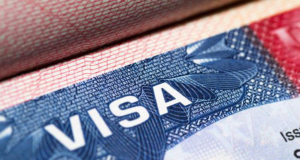The Supreme Court has scheduled October 22 for the hearing of a suit filed by 16 state governments challenging the constitutionality of the Economic and Financial Crimes Commission (EFCC) Act and the Nigerian Financial Intelligence Unit (NFIU) laws.
The case, initially brought by the Kogi State Government and joined by 15 other states, questions the legality of the laws that established the EFCC and NFIU, arguing that they contravene the provisions of the Nigerian Constitution.
 Advertorial
Advertorial
A seven-member Supreme Court panel, led by Justice Uwani Abba-Aji, set the hearing date after granting leave for the consolidation of the cases and approving the requests of the states to be added as co-plaintiffs.
The states involved in the suit, marked SC/CV/178/2023, include Ondo, Edo, Oyo, Ogun, Nassarawa, Kebbi, Katsina, Sokoto, Jigawa, Enugu, Benue, Anambra, Plateau, Cross River, and Niger.

During Tuesday’s proceedings, the states’ legal representatives made submissions.
While the majority sought to be joined as co-plaintiffs, two states requested the consolidation of their cases.
Abdulwahab Mohammed, representing Kogi State, informed the court that 13 states wanted to be added as co-plaintiffs, while two others opted for consolidation.
Justice Abba-Aji granted their requests and set the hearing for October 22.
 Advertorial
Advertorial
The states argue that the Nigerian Constitution is the supreme law and that any legislation inconsistent with it is void.
They contend that the EFCC Act, which was established based on the United Nations Convention against Corruption, did not follow the necessary constitutional provisions.
Specifically, they argue that Section 12 of the 1999 Constitution, which requires the approval of a majority of state Houses of Assembly before incorporating international conventions into Nigerian law, was not observed.
 Advertorial
Advertorial
As a result, the plaintiffs maintain that the EFCC and NFIU, as constituted, cannot operate in states that did not approve the laws.
They are seeking declarations that the Federal Government and its agencies, including the EFCC and NFIU, lack the authority to administer or manage state or local government funds and should not be involved in investigations, document requisitions, or arrests related to the financial affairs of the states or local governments.
 Advertorial
Advertorial
Kogi State’s Attorney General, through a team led by Prof. Musa Yakubu, raised six key questions for determination in the suit and is seeking nine reliefs, including a declaration that the EFCC and NFIU have no jurisdiction over state or local government finances.
The Attorney-General of the Federation is the sole defendant in the case.

















